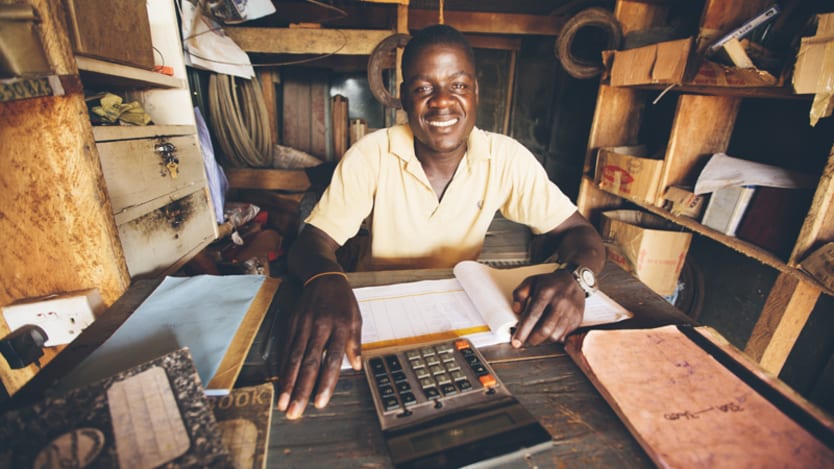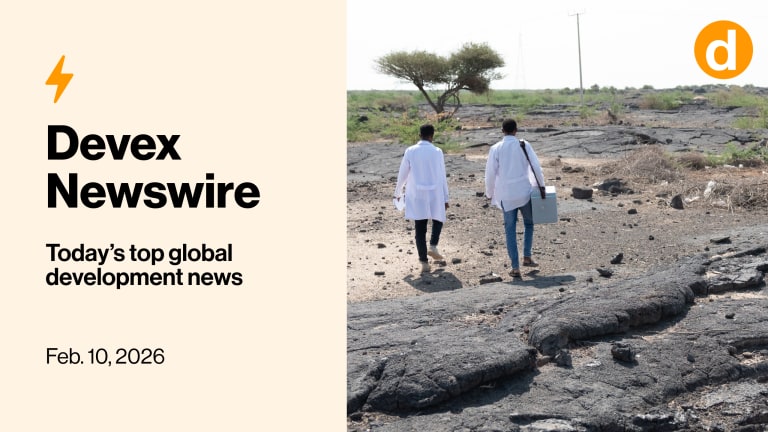
The year 2015 was an exciting one in development, with changes that will open up new ways of thinking about and measuring what we do. The U.S. Agency for International Development released its Vision for Ending Extreme Poverty; we celebrated the ratification of the Sustainable Development Goals and the 2030 Agenda for Sustainable Development; and the World Bank raised the global poverty line to $1.90 a day (from $1.25 in 2008).
This industrywide recognition that we need to double down on ending poverty is heartening. Now it’s time to figure out how to more effectively and efficiently measure success. This is particularly important when facilitating growth in the private sector, which, according to the International Finance Corp., is responsible for around 90 percent of formal and informal employment in the developing world.
During Global Entrepreneurship Week in November 2015, I addressed this issue in a global e-discussion organized by Microlinks and Beam Exchange on Strengthening Entrepreneurship by Understanding Failure and Catalyzing Ecosystems. With more than 400 participants from 63 countries, the conversation was rich and thought-provoking as we touched on the (mis)alignment of data used by donor-funded programs versus data used by entrepreneurs. We need to take a hard look at the disparity between how we as development professionals measure success and how the entrepreneurs we work with measure it — and find a way to better align the metrics that define success.
Which data matters?
Too often we ask entrepreneurs to report on metrics that are meaningless to them. At the SEEP Annual Conference in 2015, a Kenyan businessman shared his thoughts on this, saying, “I’m busy running my business. Don’t ask me to collect a bunch of data I don’t need, please just use what I’ve already got. I’m happy to share it with you.”
For many entrepreneurs, their bottom line is profits; that’s the data they’re focused on. On the other hand, for many donors and governments, it’s job growth. Although these two metrics are both important, they’re not necessarily correlated. It’s clear why donor-funded programs need to count job growth, but an entrepreneur with whom we work might not judge his success by how many additional people he employs each year. He might prefer to invest in automation that improves production efficiency and product quality while reducing the need for employees.
If he does this, should we consider our program a failure? Should we consider his business a failure? The answer is obviously no. This entrepreneur is strategically growing his business, and its growth is likely to lead to positive knock-on economic effects in his company, supply chain, and community. We should understand what growth looks like for this entrepreneur and have the flexibility to define success as he does as we jointly work toward achieving the same goal.
We should also take a broader look at the economic effects of enterprise growth and recognize entrepreneurs not just as business owners but also as economic drivers. It’s important to measure systemic change, in addition to firm-level job growth. We know that systemic change is occurring with positive knock-on effects, but we don’t yet have efficient and reliable ways to measure and attribute these changes.
That being said, we should still involve entrepreneurs earlier in the program design process, as collaborators rather than beneficiaries. Integrating them more closely into our monitoring and evaluation efforts, starting with indicator selection and target setting, can limit future clashes around data collection and provide us with greater insight into the potential systemwide economic effects of their growth.
There is success in ‘failure’
Global entrepreneurship literature abounds with startling estimates of 80 to 90 percent failure rates for new enterprises. Yet in development, we aim for 80 to 90 percent success rates, often when working with vulnerable and marginalized populations, in environments lacking good entrepreneurship ecosystems.
We often measure success by the length of time a business has operated, and anything less than the target time is considered a failure. But it’s important to also recognize and measure other achievements that we know are critical for the growth of the entrepreneur, even if his enterprise does not “succeed,” such as accessing finance, developing a business plan, finding suppliers, negotiating contracts, and hiring and managing staff. The adoption of new skills, attitudes, and behaviors enables nascent entrepreneurs to start again (and again) and continue to build stronger, more sustainable businesses, despite early “failures.”
With renewed attention and commitment to eradicating poverty, we have the opportunity to broaden our thinking and bring new people — including entrepreneurs themselves — into our discussions about what to measure and how to measure it. And with the advent of new technologies, we are well-positioned to gather and analyze data in nuanced ways. But before we begin, we need to decide how to collect and use data that will benefit development programs, as well as the entrepreneurs with whom we work and whose businesses are key to reducing poverty.
With potential to change the trajectory of crises, such as famines or the spread of diseases, the innovative use of data will drive a new era for global development. Throughout this monthlong Data Driven discussion, Devex and partners — the Agence Française de Développement, BroadReach, Chemonics and Johnson & Johnson — will explore how the data revolution is changing our approach to achieving development outcomes and reshaping the future of our industry. Help us drive the conversation forward by tagging #DataDriven and @devex.
Search for articles
Most Read
- 1
- 2
- 3
- 4
- 5








